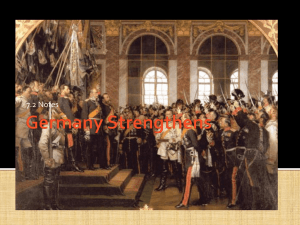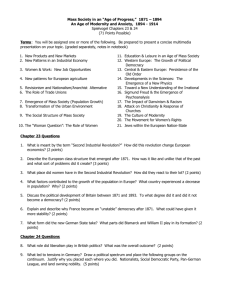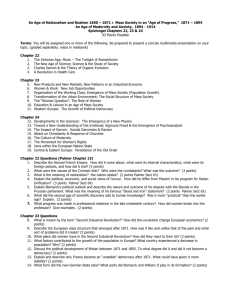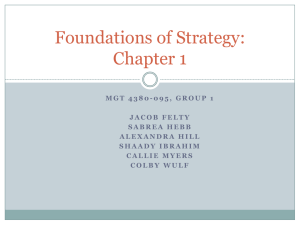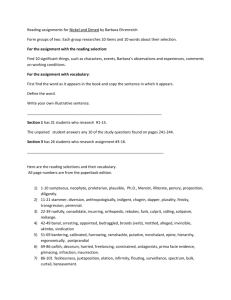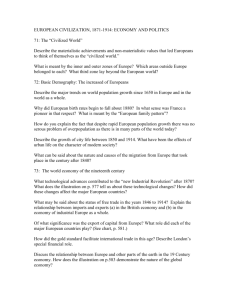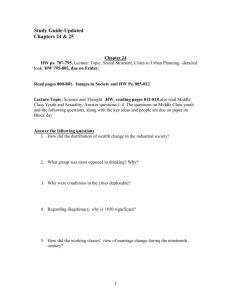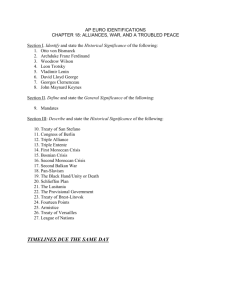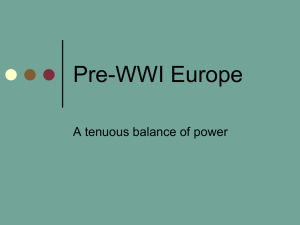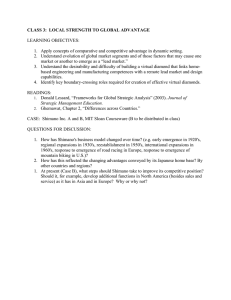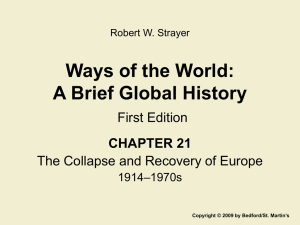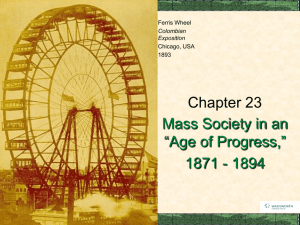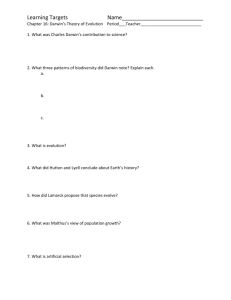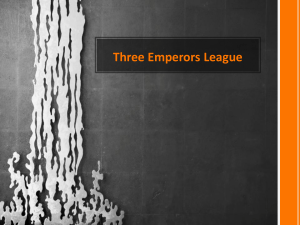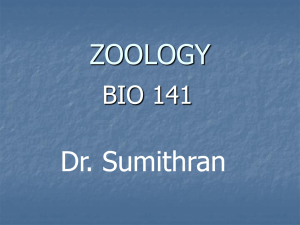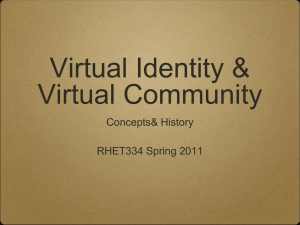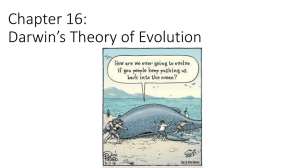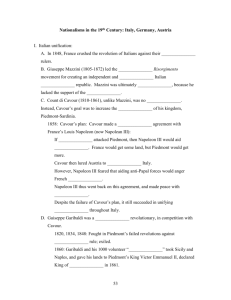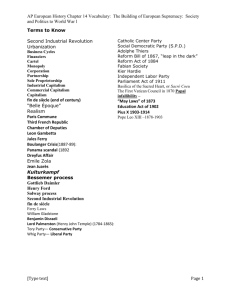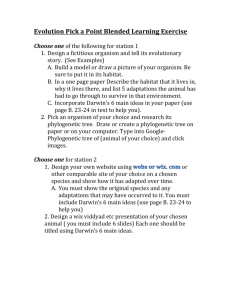Lecture 02 The Emergence of Mass Society in the Western World
advertisement
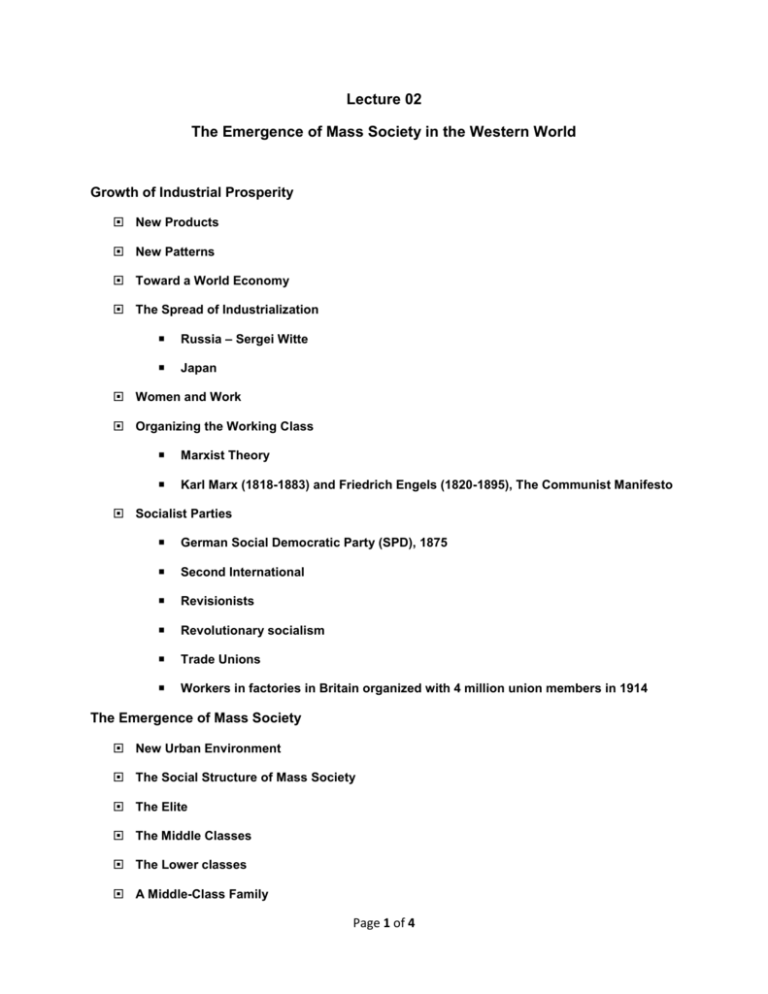
Lecture 02 The Emergence of Mass Society in the Western World Growth of Industrial Prosperity New Products New Patterns Toward a World Economy The Spread of Industrialization Russia – Sergei Witte Japan Women and Work Organizing the Working Class Marxist Theory Karl Marx (1818-1883) and Friedrich Engels (1820-1895), The Communist Manifesto Socialist Parties German Social Democratic Party (SPD), 1875 Second International Revisionists Revolutionary socialism Trade Unions Workers in factories in Britain organized with 4 million union members in 1914 The Emergence of Mass Society New Urban Environment The Social Structure of Mass Society The Elite The Middle Classes The Lower classes A Middle-Class Family Page 1 of 4 The Experiences of Women Marriage and the Family Movement for Women’s Rights Access to higher education by middle and upper-middle class women Access to jobs dominated by men: Teaching, nursing Demand for equal political rights Support of peace movements The New Woman Education in an Age of Mass Society In early 19th century reserved for elites or the wealthier middle class Between 1870 and 1914 most Western governments began to offer at least primary education to both boys and girls between 6 and 12 Compulsory elementary education created a demand for teachers, most were women “Natural role” of women Leisure in an Age of Mass Society Created by the industrial system Transportation systems meant: The National State Tradition and Change in Latin America Political Change in Latin America Large landowners took a more direct interest in politics Land owners might support dictators to ensure their interests Rise of the United States Shift to an industrial nation, 1860-1914 By 1900, the US was the world’s richest nation, but: Progressive Era United States as a World Power Annexation of Samoan Islands, Hawaiian Islands Page 2 of 4 Acquisition of Cuba, Puerto Rico, Guam, and the Philippines from the Spanish-American War Growth of Canada Quebec, Ontario, Nova Scotia, New Brunswick – 1870 Manitoba, British Columbia – 1871 William Laurier, 1896 Western Europe: The Growth of Political Democracy Britain France Italy Central and Eastern Europe: Persistence of the Old Order Germany Austria-Hungary Russia Assassination of Alexander II in 1881 Alexander III, 1881-1894, felt reform was a mistake Nicholas II, 1894-1917, wanted to rule with absolute power Growth in Marxist Social Democratic Party Revolt in 1905 Defeat of Russians by Japanese in 1904-1905 Results of antigovernment rebellions Europe in 1871 International Rivalries and the Winds of War Bismarck made alliances to preserve the new German state Bismarck removed by William II in 1890 Resulting alliance system Crisis in the Balkans Toward the Modern Consciousness: Intellectual and Cultural Developments Page 3 of 4 A New Physics Sigmund Freud and the Emergence of Psychoanalysis The Impact of Darwin: Social Darwinism and Racism Darwin’s ideas applied to human society Houston Stewart Chamberlain (1855-1927) Anti-Semitism Palestine Culture of Modernity Symbolists Art Post-Impressionism - Vincent van Gogh (1853-1890) Photography - George Eastman 1888 Cubism - Pablo Picasso (1881-1973) Visual reality - Wassily Kandinsky (1866-1944) Page 4 of 4
